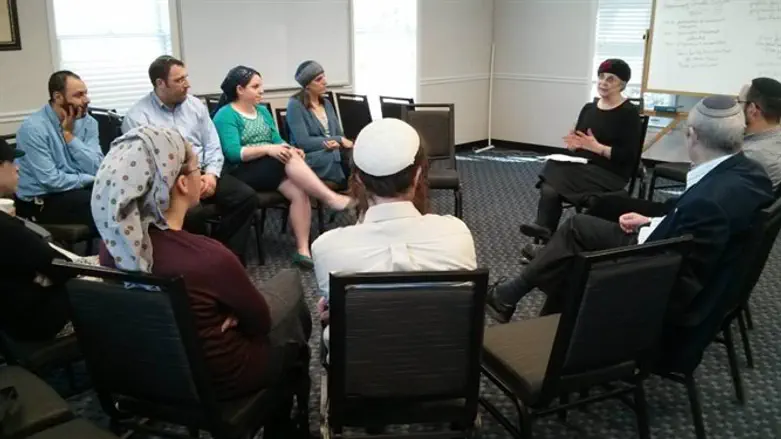
The days of repentance call us to make a revolution in life. This is how the Rambam writes:
"From the ways of the ba'al Teshuvah is to be the one who always shouts before G-d in tears and supplications, and does charity according to his power, and moves far away from his sins. And changes his name, saying: I am different and not the same man who did the same deeds, and changes all his deeds for good and straight ...." (Hilkhot Teshuvah Chapter 2, 4)
And also - "Last night he was hated in front of G-d, scorned and distant and abominable and today he is loved and nice, close and friendy." (Hilkhot Teshuvah - Chapter 7, 6)
The process of repentance is able to transform the person, to be another person, a new person. From a situation where he was scorned and far from God, to a situation of being loved and close.
This idea appears in a famous halakhah that appears in the Gemara in Kiddushin (49)
"He who marries a woman on condition that he is completely righteous – even if he is right now completely evil – They are considered married, perhaps he has repented"
This miraculous ability of repentence, is not just a theoretical matter, but actual law. We believe that it is possible for a person to change his ways from end to end. We are able to choose a new path, and change fundamentaly!
We feel this idea especially strongly as we approach Yom Kippur. The Shulchan Aruch mentions the custom of going to the mikveh on the eve of Yom Kippur (O.H. 606, 4). The Mikveh as it appears in the Torah purifies, and there is no doubt that even on the eve of Yom Kippur we strive to arrive pure and clean.
But it seems that going to the mikveh actually includes another idea.
Sefer Hachinuch writes:
"The matter is for man to see himself after the mikveh as if he were created at that time, as the whole world was water before being man…" (Mitzvah 173)
Going to the Mikveh is a kind of rebirth. Just as the world was created in water, so man was re-created by the Mikveh. (Actually even the second time the world was created in the days of Noah – it was by the flood – which is a recreation by water).
Rabbi Shmuel Burstein adds to this idea in a sermon for Shabbat Teshuvah (1904) (Shem Mishmuel) -
"… and the rabbis teach (Yoma 81) "just as the mikveh purifies the unclean, so G-d purifies Israel".
And as my father interpreted - that man is can't live in water, and therefore when he comes in the water he seems to have lost his life, and when he comes out of the water he is as a child newly born, so is the purity of the repentance, for he returned to his source
"And may G-d give him a new life and as a newborn child ... and of course the purity of the person repenting should be this way, that his heart be so broken within him that no reality remains in him, and all his senses and all his soul powers be swallowed in repentance, like the imagination of man who is entirely in water".
The Mikveh is not only similar to the creation of the world, it is also similar to the creation of man. Just as man was created out of water in the womb of his mother, and man has no independent existence and reality when he is in the water, so repentance is to become reborn and begin life again. And we must feel such a great rupture with the past when we repent, that it is as if we have no previous reality.
The idea of starting anew is revealed in another way on Yom Kippur. Yom Kippur is the fortieth day of Moses' ascent to Mount Sinai, an ascent that begins on Elul, and ends with the giving of the second tablets and the wonderful announcment of G-d "I have forgiven as you have said." A special period of forty symbolizes a new beginning, another creation.
Thus in the first appearance of forty days in the Torah, in the flood - "because in the future seven more verticals will rain on the earth forty days and forty nights" (Genesis 7: 4), and Rashi comments - "similar to the creation of a fetus" (based on Sotah b1).
Indeed, we often find this special number, forty, relating to a new creation - forty years that the people of Israel walked in the wilderness (to repent for the sin of the calf and to start anew), and the Ninveh people are warned that forty more days remain until Ninveh will be destroyed, and so does the halakhah stipulates that the mikveh of purity should contain forty Se'a (Chagiga 11a).
On Yom Kippur we are reborn, thanks to the process of repentance. Man is endowed with the ability to change, we have a free choice, and the ability to deal with any difficulty and any situation. Even during these days when we encounter a complicated, difficult and challenging reality - we can change, be reborn - and be different!
in memory of Yaakov Aharonov z"l

Rabbi Avi Goldberg, Rosh Kollel in Memphis (2007 - 2011), Currently educator and rabbi of the Himelfarb School in Jerusalem, and volunteer with the Tzohar Rabbinical Organization